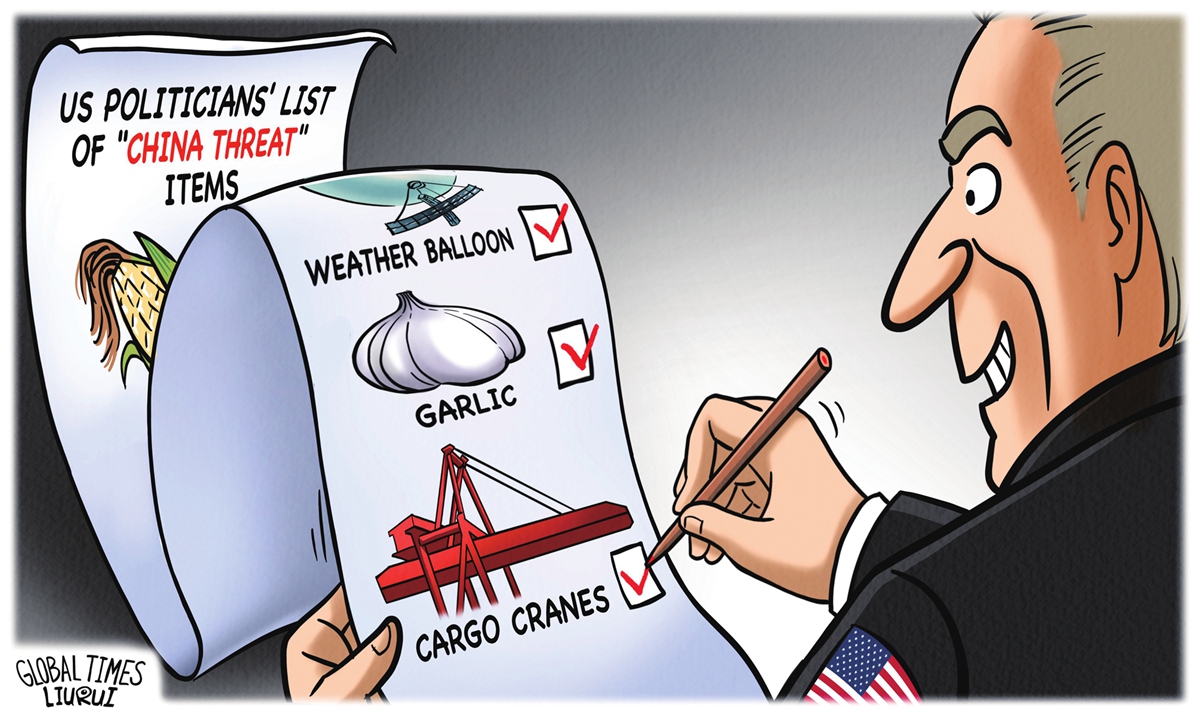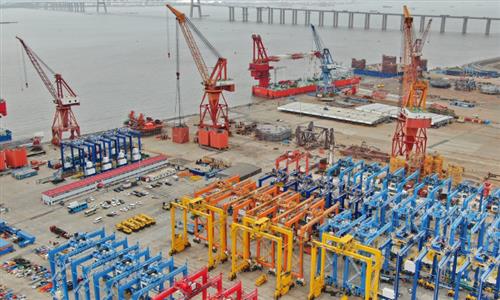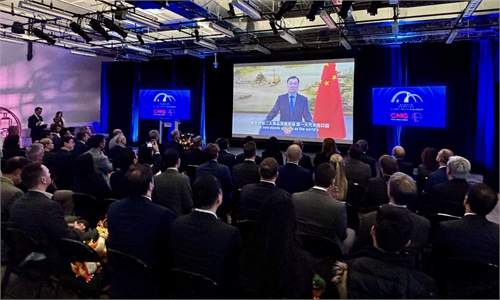
Illustration: Liu Rui/GT
It is not uncommon for Canada to align itself with the US on matters concerning China. However, such political posturing may not only strain economic and trade relations between China and Canada, but also jeopardize Canada's own economic interests.The latest example is an article published on Monday by Canadian media outlet The Globe and Mail, which disclosed that the Canadian government is working with the Vancouver Fraser Port Authority to assess whether China-built cargo cranes operating in several Canadian ports pose a so-called national security risk.
The news came just a few weeks after the US reportedly planned to invest billions to replace China-built cranes due to so-called potential "national security risks."
US politicians claimed that the Chinese cranes contained communication devices.
Anyone who has basic knowledge of how cranes work can see clearly whether there is any alleged "national security concern" with China-built cranes. Over the years, cranes made in China have become the preferred choice for ports and engineering projects in many countries and regions, as their efficient operation and reliable performance have garnered recognition from international users.
For example, as of the end of 2023, Shanghai Zhenhua Heavy Industries Co (ZPMC)'s cranes were at work in 107 countries and regions globally, contributing to more than 70 percent of the world's automated terminals. With about 15,000 of ZPMC's cranes towering over docks worldwide, their quality and reliability are obvious, according to Chinese media reports.
It is already ludicrous for US politicians to concoct a national security risk concerning cranes, but what is even more absurd is that some in Canada have blindly followed suit, an indication of a lack of independent thinking and judgment. It's clearly a political maneuver rather than a genuine concern for security.
For years, some Canadian politicians have played up all kinds of "China threats" and provoked unnecessary confrontations in alignment with the US, without considering the potential harm to the Canadian economy and its businesses. Against the backdrop of a volatile global political and economic landscape, their prioritization of US policy appears particularly inappropriate.
China and Canada have a highly complementary trade relationship. China has been Canada's second-largest trading partner for many years, with bilateral trade in goods growing from just a few hundred million Canadian dollars in the 1970s to nearly C$130 billion ($95.59 billion) in 2022.
Considering the economic structures of the two countries, there are enduring factors that will continue to drive the growth of economic and trade cooperation in the foreseeable future. Any political disruption to such important economic ties would be regrettable and represents a great economic loss for Canada.
Likewise, Canada uses China-built cranes because of their excellent quality and competitiveness in the global market. This kind of trade behavior, based on the law of the market, benefits both sides economically. However, Canada's move to assess Chinese cranes on the grounds of so-called national security signals political intervention in the field and raises upsetting questions.
Does it mean that some in Canada are looking to replace Chinese cranes, similar to the reported actions taken by the US? There is no doubt this will result in losses for Canada.
The US has already suffered economic losses from similar actions, subsidizing its own industries, such as solar panels, batteries, electric vehicles, semiconductors, and probably cranes this time, after suppressing Chinese companies. Yet, it turns out that most of these industries don't appear to regain competitiveness even with subsidies, and the costs of those products have further gone up, boosting inflation.
So if Canada continues down this path and makes a choice that violates economic laws, the costs will be unaffordable. Canadians must realize that they cannot afford to play the American game any longer, and they need to take a more pragmatic approach to economic and trade cooperation with China, respecting market rules, before it is too late.



